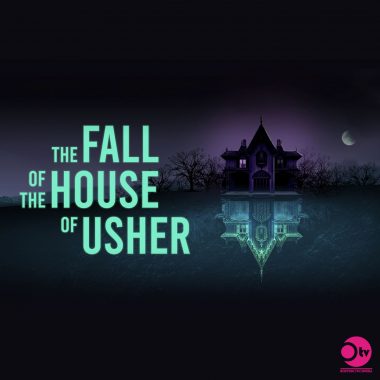 The latest in a long line of avant-garde film adaptations of Edgar Allan Poe’s immortal 1839 story “The Fall of the House of Usher,” and of avant-garde film projects from composer Philip Glass. The latter’s 1988 Poe-inspired opera, with a libretto by Arthur Yorinks, provides the soundtrack for this 2021 film, created entirely in quarantine by the Boston Lyric Opera.
The latest in a long line of avant-garde film adaptations of Edgar Allan Poe’s immortal 1839 story “The Fall of the House of Usher,” and of avant-garde film projects from composer Philip Glass. The latter’s 1988 Poe-inspired opera, with a libretto by Arthur Yorinks, provides the soundtrack for this 2021 film, created entirely in quarantine by the Boston Lyric Opera.
This FALL OF THE HOUSE OF USHER consists largely of a visual collage that’s not too far removed from the Glass scored films of Godfrey Reggio (KOYAANISQATSI, POWAQQATSI, NAQOYQATSI, VISITORS), with a great deal of 1950s-era documentary footage depicting nuclear bomb tests, animal experimentation and classroom hijinks, juxtaposed with modern TV news clips depicting the immigrant experience.
There’s also a narrative of sorts that presents the particulars of Poe’s tale, about a young man’s horrific visit to the accursed home of a friend named Usher, via dolls brought to life through stop motion. This is intercut with animated depictions of a man working in an immigrant detention center, where he gets to know a young girl being held therein. The two accounts are designed to complement one another—when Usher’s daughter is overcome by lassitude so is the detained girl—and inevitably come to intersect with the documentary footage and TV news snippets.
Holding it all together is black and white footage of a woman in a man’s suit, residing in a very old timey living room. She serves as, essentially, a pretentious Rod Serling, commencing the film with a monologue about the efficacy of dolls and the nature of Poe’s tale (it’s apparently “The trap inside your chest that won’t let you breathe, the lump in your throat that won’t let you swallow”), and then spending much of the remainder of her screen time concernedly watching images of migrant children on her TV.
The “Fall of the House of Usher” opera is admittedly not one of Philip Glass’s better works, being rather drab overall and containing a great deal of recycled music from his other, better work. As for the film it graces, the pacing is extremely erratic, with a great deal of action-less still life—a consequence, no doubt, of the filmmakers’ attempts at matching the imagery with the highly languid, contemplative music. There’s also the question of whether the material, in textual or operatic form, is an appropriate vehicle with which to juxtapose the plight of modern-day immigrants. I’m not sure it is.
Yet the film deserves to be graded on a curve. It’s a laudably ambitious project, and its mixture of traditional animation (primitive though it may be), stop motion, documentary and live action is pulled off with a fair amount of skill by director James Darrah, who’s succeeded in something attempted (but rarely pulled off) by filmmakers ranging from Ingmar Bergman to Ken Russell: making opera cinematic. Perfect this film isn’t, but jazzy and imaginative it definitely is.
As of early 2021, THE FALL OF THE HOUSE OF USHER can be rented here.
Vital Statistics
THE FALL OF THE HOUSE OF USHER
Boston Lyric Opera/Ancient Order of the Wooden Skull
Director: James Darrah
Producer: James Darrah, Jessica Johnson Brock
Screenplay: Raul Santos
(Based on a story by Edgar Allan Poe)
Cinematography: Pablo Santiago
Editing: Andrew Putschoegl
Cast: Daniel Belcher, Jesse Darden, Chelsea Basler, Christon Carney, Jorgeandres Camargo, Sheila Vand
